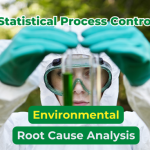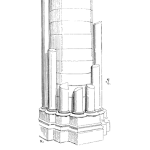
In probability theory and statistics, the Weibull distribution is a continuous probability distribution. It models a broad range of random variables. Largely in the nature of a time to failure or time between events. It addresses mechanical or structural failures in the field of Reliability Engineering. By nature, the Weibull distribution provides a lot of information such as aging characteristics or expected asset lifetime. One of its most common outputs is the Bathtub Curve.
[Read more…]












 Ask a question or send along a comment.
Please login to view and use the contact form.
Ask a question or send along a comment.
Please login to view and use the contact form.